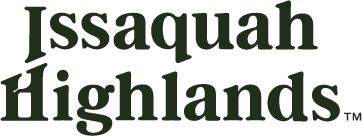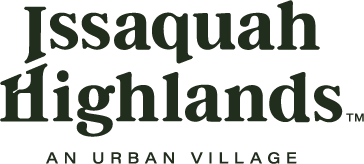The following are commonly asked questions about the Issaquah Highlands Community Association (IHCA) and its role as the Issaquah Highlands homeowners association.
What is the IHCA’s purpose?
The IHCA’s primary purpose is to preserve, maintain, enhance, and protect the value of property and amenities within the boundaries of the Issaquah Highlands community. It does this by maintaining common areas (including parks, streetscapes, and open space) and governing the community in accordance with the provision of legal governing documents: Covenants, Conditions, & Restrictions (CC&Rs); Bylaws; Use Restrictions and Rules (URRs); and Articles of Incorporation. The IHCA is financially supported by all members of the community association through the payment of assessments. Membership is both automatic and mandatory.
What are the Covenants, Conditions, & Restrictions (CC&Rs)?
The CC&Rs are covenants imposed by a builder or developer that run with the land and detail how the community is to be governed. In a master-planned community like Issaquah Highlands, these rules provide stability and structure for the residential part of the project, which translates into improved property values for the members. The CC&Rs are a recorded document and are included in the title to your property.
What are by-laws?
By-laws are developed during the creation of a nonprofit corporation. They are provisions that govern the internal management of the association and cover such topics as the election of directors, the terms of the directors, the process for board and member meetings, the principal office of the homeowners association, as well as other specific items that are necessary to run the homeowner’s association.
The IHCA is a nonprofit corporation registered with the state of Washington. Download the IHCA By-Laws.
What are Use Restrictions and Rules?
Use Restrictions and Rules are specific rules and requirements identifying the types of activities and/or conduct of the homeowners in a community association.
Review the Issaquah Highlands Use Restrictions and Rules
How can I get copies of the IHCA governing documents?
Copies of the IHCA’s governing documents (CC&Rs, By-laws, and Use Restrictions and Rules) can be obtained through the IHCA, the Issaquah Highlands website, the IHCA mobile app, or (if a recorded document) online through the county recorder’s office.
How is the IHCA governed?
The IHCA is a Washington nonprofit corporation governed by a volunteer board of directors, each member with one equal vote. The board of directors is composed of Issaquah Highlands homeowners with representation from each Board District (link to district map). Homeowners elect the directors. The board hires the IHCA executive director.
Board meetings are held monthly and are open to the public. Some portions of board meetings can be closed to the public if matters discussed are confidential in nature (for example, in the event of litigation). Find meeting dates listed on the website calendar.
What are my assessments and how are they used?
Assessments are obligatory fees each homeowner pays to fund their share of the common expenses benefiting all, or a portion of, the association. Base assessments are levied equally against all homes based on a budget prepared annually by the IHCA Board of Directors covering the estimated costs of operating the association. Neighborhood (supplemental) assessments are fees paid by a homeowner to fund additional services for the neighborhood in which they live.
Homeowner’s assessments finance ongoing operation costs including landscape maintenance, park maintenance, maintenance of common areas, 24/7 inclement weather service, utilities, insurance, property management, administration, architectural control, and violation enforcement. In addition, a capital reserve account is funded for long-term maintenance and replacement of IHCA property.
To learn more about your specific assessments, contact the IHCA.
Pay your assessments online here.
How is the amount of my assessments determined?
Annual budgets (one base budget and multiple neighborhood budgets) are developed by the IHCA Board of Directors with the assistance of a finance committee and the IHCA administration. The budgets are calculated estimates of expenses for operations, capital costs, and reserves for one fiscal year (July-June), and after adoption may be adjusted periodically to meet anticipated expenses.
Will my assessments increase?
The CC&Rs dictate the process by which the budget is drafted and approved by the board. All budgets must be ratified before implementation. Assessments can increase or decrease depending upon the income expected versus the estimated expenses to be incurred. For instance, while new homes “joining” the association adds additional income, new parks or additional services would increase expenses.
What if I don’t pay my assessments?
The maintenance and management services incurred by the IHCA are dependent upon timely receipt of the assessments from each homeowner. When homeowners fail to pay assessments, the IHCA has the right to charge late fees with interest, pursue a lien on property, or even foreclose.
What rules affect homeowners on a day-to-day basis?
The IHCA has developed Use Restrictions and Rules (URRs), as provided for in the CC&Rs and adopted by the IHCA Board of Directors. URRs are established to provide direction to the homeowners for common courtesies such as parking, vehicles, pets, park-use hours, etc. In addition, the IHCA has adopted architectural guidelines with procedures for submitting requests to make exterior changes to your home, including landscaping, fences, exterior color changes, or extensive interior changes and additions. These rules and guidelines are designed to maintain the aesthetic value and integrity of the community on behalf of all owners and protect the market value of your investment.
What is a common area?
The term “common area” is generally used to describe elements within the community owned and maintained by the IHCA and dedicated to shared use and enjoyment by all owners. Common areas include parks, streetscapes, and dedicated open spaces.

